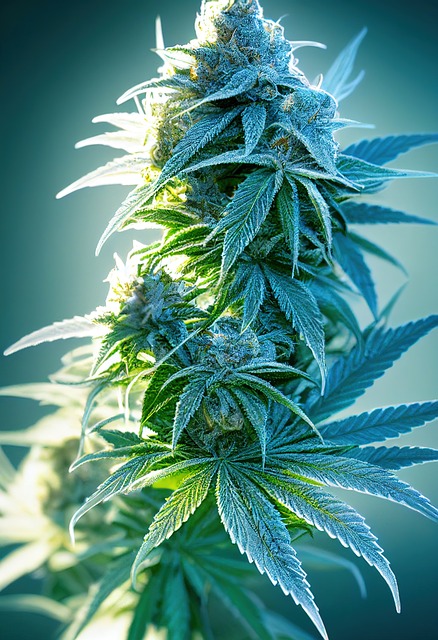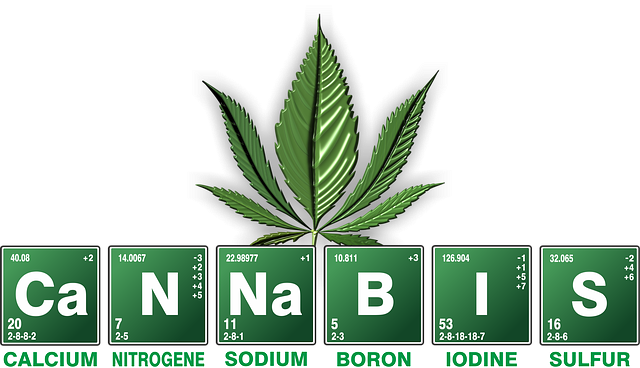
THCA flowers, a non-psychoactive form of cannabinoid derived from hemp and cannabis plants, are emerging as a natural and effective alternative for pain management. Unlike its psychoactive counterpart THC, THCA offers potent analgesic benefits by interacting with the endocannabinoid system, modulating pain signaling and inflammation without inducing psychoactive effects. Clinical research supports the use of THCA flowers as a safer option with fewer side effects compared to conventional medications, making them suitable for a variety of pain conditions, including musculoskeletal and neuropathic disorders. The anti-inflammatory properties of THCA are attributed to its ability to inhibit COX-2, an enzyme linked to inflammation and pain. As such, incorporating THCA flowers into a wellness routine can provide targeted relief, potentially enhancing quality of life for individuals seeking natural pain relief options. The therapeutic potential of THCA flowers is clear, offering a holistic approach to pain management without the cognitive or psychoactive changes typically associated with cannabis use.
Explore the emerging benefits of THCA flower, a natural remedy garnering attention in the realm of pain management. This article delves into the scientific underpinnings and therapeutic applications of THCA, highlighting its potential to alleviate discomfort without the psychoactive effects typically associated with cannabis. From understanding the mechanisms behind its pain-alleviating properties to unlocking relief for those in search of alternative solutions, “THCA Flower for Pain Relief” provides a comprehensive overview of this promising plant compound.
- Unlocking Relief: The Therapeutic Potential of THCA Flower for Pain Management
- Cannabis Science and THCA Flower: Understanding the Mechanisms Behind Pain-Alleviating Effects
Unlocking Relief: The Therapeutic Potential of THCA Flower for Pain Management

Discovering the natural soothing properties of THCA flowers has become increasingly significant in the realm of pain management. Tetrahydrocannabinolic acid (THCA), the raw cannabinoid found in hemp and cannabis plants before it is heated or decarboxylated to produce THC, exhibits a profound potential for alleviating discomfort. Studies suggest that THCA interacts with the body’s endocannabinoid system, modulating pain signals and inflammatory responses without the psychoactive effects associated with its counterpart, THC. Users turn to THCA flowers for pain relief as an alternative to pharmaceutical options, often experiencing fewer side effects and a more holistic approach to well-being. The anti-inflammatory and analgesic qualities of THCA make it a viable option for those seeking natural remedies for chronic or acute pain conditions, from musculoskeletal disorders to neuropathic issues. By incorporating THCA flower into their regimen, individuals can potentially unlock relief tailored to their specific needs, contributing to an improved quality of life without the mind-altering effects commonly associated with cannabis use.
Cannabis Science and THCA Flower: Understanding the Mechanisms Behind Pain-Alleviating Effects

Delta-9-tetrahydrocannabinolic acid (THCA) is a non-psychoactive cannabinoid found in the Cannabis sativa plant, which is known to exert various therapeutic effects. The interest in THCA flower for pain relief stems from its potential interactions with the body’s endocannabinoid system. This system plays a crucial role in regulating physiological and cognitive processes, including pain sensation and response. THCA interacts with the body’s cannabinoid receptors, such as CB1 and CB2, which are spread throughout the body, influencing pain perception by modulating neurotransmitter release.
Research suggests that THCA may offer significant pain-relieving benefits due to its anti-inflammatory properties. Unlike its psychoactive counterpart, delta-9-THC, THCA does not induce a high, making it an attractive option for those seeking relief without the psychotropic effects. Studies have indicated that THCA can inhibit the enzyme COX-2, which is involved in the production of pro-inflammatory and pain-causing prostaglandins. This action contributes to its analgesic effects, making THCA flower a potential natural alternative for managing various types of pain, from mild discomfort to chronic inflammatory conditions. Users often report that incorporating THCA flower into their wellness regimen helps alleviate symptoms associated with arthritis, neuropathy, and other painful conditions without the mind-altering impact associated with other cannabinoids.
THCA flower, a non-psychoactive cannabinoid found in hemp and cannabis plants, has emerged as a promising natural alternative for managing pain. The therapeutic potential of THCA flower, detailed in this article, unlocks a new realm of relief for individuals seeking effective pain management without the psychoactive effects of delta-9-tetrahydrocannabinol (THC). Scientific research indicates that THCA interacts with the body’s endocannabinoid system, providing analgesic properties that can alleviate various types of pain. As an accessible and versatile option for wellness, THCA flower for pain relief is a subject of growing interest in the cannabis science community, offering insights into its mechanisms of action. Users interested in exploring this natural remedy should consult with healthcare professionals to ensure safe and effective use as part of a comprehensive pain management strategy.




